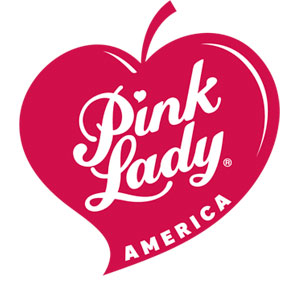
Questions and Answers
What does the agreement mean?
Pink Lady America (PLA) and Apple and Pear Australia Limited (APAL) will now work together to develop trade from the US & Mexico into APAL territories and jurisdiction (territories) and from APAL territories into US and Mexico. APAL will be the ‘manager’ of business and will conduct all administration and marketing including licensing exporters and importers for this trade. PLA will continue to manage exports from the US to Canada and/or Mexico.
Couldn’t we trade before?
APAL owns the Trade Mark outside of the US and Mexico and Brandt’s Fruit Trees (BFT) owns the Trade Mark in the US and Mexico. Trade could take place previously, but both sides would apply royalties, fees, penalties and protect their respective interests. Now that these interests are aligned and a single fee applied, trade is more likely to be successful. In addition, with product exported into APAL territories, this will be supported with marketing and promotional funds and activities.
Will PLA be issuing export or import licenses?
PLA will only issue export licenses to approved US Exporters strictly for exports to Canada and/or Mexico. All other Export and Import Licensing will be issued and approved by APAL exclusively.
What royalties and fees apply to You?
APAL Licenses include an annual License Fee of USD$4,000. You are also charged a Volume Fee depending on the market you export to or import from. This is all defined in Schedule 1 of the License. The Volume Fee is paid to APAL and then reinvested by APAL into these markets, managing the market, protecting the brand and funding promotional activities in those markets to support your fruit. There are fees and penalties applied for breaches of the license. These are documented in Schedule 1 of the License. We recently changed the name of the Fee from ‘Royalty’ to ‘Volume Fee’ in order that it more accurately reflected the elements of the Fee; these include a royalty component, administration component and a marketing component. It is important to distinguish these for two reasons; clarification in what we actually use the fee for and because the Withholding Tax only applies to the Royalty component. PLA will continue to use the same royalty structure as previous years. There will be no annual fee. For Branded product exported to Canada and/or Mexico there will be a USD$0.50 royalty assessed for each 18kg/40lb TP box equivalent exported.
How much is the volume fee and who pays this?
The APAL assessed volume fees are outlined in Schedule 1 of the License. There are differing rates applied to different markets. There are a number of reasons for this; reliability and systems within a market, ability to collect and report and ability to audit. Our preference is for this to all be At Source and this is a project we hope to complete within the next eighteen months to two years.
- In the case of supplying the UK; our UK licensees would collect and pay this to APAL (At Destination).
- In the case of Europe; our European licensees would collect and pay this to APAL (At Destination).
- In the case of South East Asia; you (US exporter) would be expected to pay this to APAL (At Source).
- In the case of the Gulf States; you (US exporter) would be expected to pay this to APAL (At Source).
- In the case of China; you (US exporter) would be expected to pay this to APAL (At Source).
Does everyone pay the same?
APAL Volume Fees and other fees are being standardized across the world.
Why do we have to pay fees?
To run the business, to develop markets and to support your product in markets with promotional activity. We also use a percentage of the Volume Fee to fund marketing and promotional activities to the consumer, to provide brand protection against counterfeit and other activities that attack and undermine the value of the brand in these territories and for administrative and in market management. The vast majority of fees collected by APAL in relation to Pink Lady® volumes shipped, are invested back into the promotion of your fruit at destination and development of new markets.
What about Canada?
APAL has agreed for PLA to continue with its current arrangements with respect to exporting from the US and Mexico to Canada. You will continue to be licensed by PLA and pay the rates to PLA that currently apply. However, as Canada is an APAL managed territory, we also import product from our other global jurisdictions. This means that we will require exporters from the US and Mexico to ensure their branding conforms to the current APAL Pink Lady® brand guidelines with the new contemporary 2-dimensional logo. Please contact either Kathryn Grandy at PLA or Craig Chester at APAL for guidance on this.
Can I trade with China?
Yes. We have appointed Joy Wing Mau as our first partner in China. China is a complex market and having a partner with an excellent network, premium consumer channels and who understands brands, is a challenge in China. We are hoping to add more partners over the coming twelve months, but at this stage Joy Wing Mau is your licensed partner. If you have any business partners who you believe we should consider, please forward these details to Andrew Hooke at APAL. We are in the final stages of development for our brand marketing strategy for China. This is largely an online and premium supermarket-based strategy with heavy social media support. McCann in Bristol (UK) and Shanghai are our creative partners and will help to develop a portfolio of promotional tools as well, for your and our partners use in market. In order to develop the Chinese market, APAL, in addition to the Volume Fee of USD$110 per metric tonne on shipments, also charges the Chinese Importer USD$80 on that same tonnage, to invest in marketing and promotional activities in this market. This is an important distinction from other markets; China is an enormous and growing premium market and the costs of marketing the brand and promoting fruit are extremely high.
What do you believe to be the best export opportunities for the US?
Without consideration to market access, which you will need to check, there are a significant number of markets that attract a premium price (if supported with effective marketing and promotion) and are seeking all-year-around supply. With limited licensed northern hemisphere supply outside of Europe, this provides an outstanding opportunity for US growers and exporters.
The Gulf States, South East Asia, China and the United Kingdom are all strong premium markets seeking additional Northern Hemisphere supply of high-quality Pink Lady® branded apples. We have APAL Pink Lady® regional managers who can support you by connecting you with these markets and providing you with intelligence around that market.
These include:
- South East Asia: – Craig Chester, Ryan Au, Peter Richardson
- Gulf States: – Andrew Mandemaker, Peter Richardson, David O’Brien, Jubin James
- China: – Andrew Hooke, Andrew Mandemaker
- United Kingdom: – Peter Durose
Please note that some of the Gulf States (KSA, UAE and Qatar) and South East Asian countries (Vietnam and Thailand) are Tier 1 SMSP licensed territories (refer below), and you require specific APAL approval for these. In all these markets, we have contracted local marketing agencies who localise the brand positioning and develop execution strategies to connect to the customer and support your product on shelf.
What is the SMSP?
One of the issues we have had in some of the new and emerging markets has been continuity of supply within and between seasons. We had invested heavily into some of these markets, only to on occasions, have no product arrive. Retailers and importers alike lost confidence. The Selective Market Supply Program (SMSP) was devised to lock in suppliers with 3-year contracts to specific markets in return for minimum volume commitments. This also prevents seasonal dumping (you require a specific license for SMSP Tier 1 markets). In addition, we guaranteed significant funding for brand marketing and promotional activity in that market. In addition, each Tier 1 market is managed by a Roundtable that addresses quality issues and promotional and brand campaigns in that market and includes exporters participation. The result has been a great success, with Tier 1 SMSP markets KSA, UAE, Qatar, Vietnam and Thailand witnessing 132% increase on prior year for the SH season. Growth in these markets has been flat for eight years. We ask that you apply to APAL through your license to any of these Tier 1 SMSP markets. For any additional information, either contact Peter Richardson or Andrew Hooke.
Who are other key contacts at APAL?
- Quality and technical: Andrew Mandemaker
- Brand and packaging: Craig Chester
- Marketing: Michelle Evans
- Legal and brand protection: Amy Larking
- Communications: Jeremy Griffiths
What are the quality specifications required for export?
These vary by market. It is best to check with Andrew Mandemaker or any of the APAL regional managers.
Minimum block color required for:
- UK is 40%,
- Continental Europe is 40%
- South East Asia is 60%
- China is 60%
- Gulf States is 60%
What branding is required for export?
There are slight differences between the US and Mexico branding. PLA and APAL are working toward adoption of the APAL jurisdiction Pink Lady® branding. This design was part of a complete brand refresh conducted in 2017 and is currently being rolled out by APAL globally. Some markets/territories have adopted this quicker than others. This is largely due to inventory of all packaging. APAL has provided PLA with a full set of its branding guidelines. These guidelines are also available from the www.pinkladyapples.com web site and include all the requisite packaging applications including dimensions and layups for:
- Fruitainers
- One layer consumer box, Two layer consumer box
- Premium box
- Bushel box
- One layer export box, Two layer export box
- 12kg Export Box
Craig Chester (APAL) and Kathryn Grandy (PLA) will be working together to assist in the transition to the new branding. They can be contacted for guidance on branding requirements for all product exported under the Pink Lady® brand.
Will this branding be adopted for the US domestic market?
Yes. PLA is continually working to align with the APAL Global Pink Lady® Brand. This will be carefully managed to ensure there is not a cost or imposition to domestic supply. This will include both domestic supply and imported, to ensure consistency and avoid confusing the consumer.
Andrew Hooke
Chief Operations Officer
Apple and Pear Australia Limited
Kevin Brandt
Vice President
Pink Lady America







